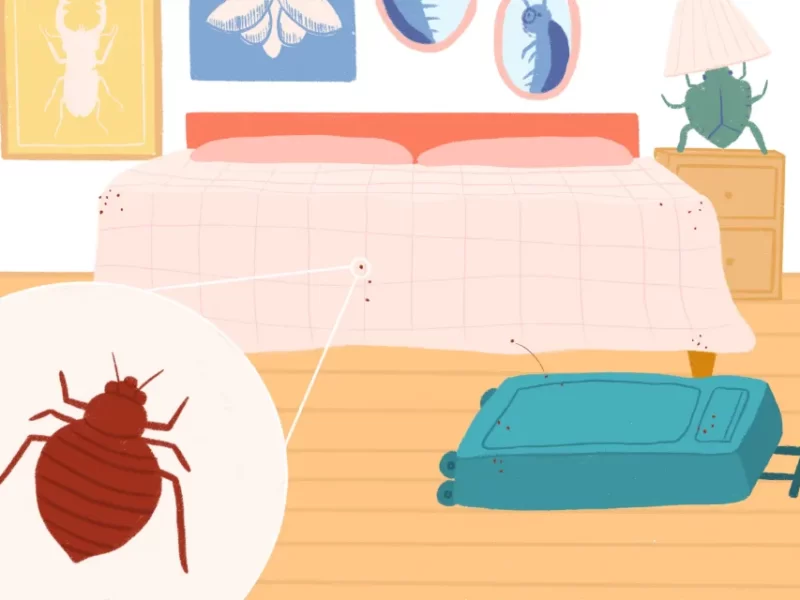Coping with the aging process can be difficult because as we age, we experience many physical and emotional changes. We no longer possess the youthful vitality we once did.
Despite the fact that people generally have a longer life expectancy today, the aging process can be a distressing fact of life. But the reality is that many senior citizens are afraid of things they don’t understand, and this fear will only grow as time passes.
This will encourage a more optimistic outlook if you are having trouble adjusting to getting older. Having a realistic outlook and taking care of your physical needs will support your optimistic outlook. These are our advice to you.
Signs That You Are Aging
Decrease in Bone Mass
Our bones get smaller and weaker as we age. It’s a good idea to have a backup plan in case something goes wrong.
We are more likely to experience hazardous falls, which frequently result in injuries, when this loss of bone mass takes place. As we age, our ability to recover from these injuries decreases.
The slow healing process is brought on by the weakened immunity that comes with aging. According to the Center for Disease Control and Prevention (CDC), falls are the highest cause of death related to injury among seniors.

Delayed Reflection
You may notice that your body does not react to stimuli as strongly as it did; it takes much more energy and time to be stimulated. Reduced taste, touch, vision, and smell are the results of this.
Typically, the changes in taste and smell cause a decrease in appetite, which is bad for your health. It can be harmful when one’s taste and smell are impaired. Food poisoning can occur if you accidentally consume bad food or drinks.
Memory Deterioration
.. Also possible is a slight memory loss. Plaques and tangles can sometimes form, harming the brain’s nerve cells. You are more prone to dementia because of these abnormalities.
Diminished Digestive Function
Aging causes a slowdown in your metabolism and digestion. The gastrointestinal tract normally contracts as we age to move food to various processing stations, but as we get older, it becomes firmer and more rigid.
Constipation, stomach pain, and nausea may follow as a result. Acid production in the stomach and saliva both decrease. These physiological changes result in possible choking and food-borne illnesses as it becomes harder for your body to dispose of harmful bacteria.
How to Deal With Aging: Finding Healthy Ways
Accept the Facts
It’s harder to accept aging than it is to accept oneself, especially when aspects of one’s life are changing that had been constant for a long time. It’s common to experience stress and angst over some of the transitions that older adults go through. But keep in mind that everyone ages, and that worrying won’t make it go away.
All ages experience transitions, both welcome and unwelcome, as change is a natural part of life. Give yourself permission to feel upset when you are dealing with an unwanted or challenging change. Find constructive ways to express your anxiety or frustration, and give yourself space to mourn. You could, for instance, express yourself in a journal, to a friend, or through music or art.
Try to reframe the situation in a positive way to make the transition more tolerable after processing your feelings about getting older. Think of your move to a senior living community, for instance, as an opportunity to establish a solid social network. If you’re retiring, you now have a chance to spend more time with family or friends.
Don’t Deny Your Age
Part of aging well is coming to terms with your age. Being in denial about aging will only cause you pain and annoyance. You can still feel youthful no matter how old you are, but don’t try to force it by dressing in clothes meant for teenagers or surrounding yourself with far younger friends.
Follow a lifestyle that feels natural and comfortable and avoid making choices based on what you believe will make you look young. Choices that allow you to delay the onset of aging are distinct from those that feel genuinely healthy and rewarding. Instead of trying to stop aging altogether, it is preferable to concentrate on maintaining your health and happiness as you get older.

Making the most of your senior years by maintaining good physical, mental, and emotional health is important because time goes by regardless of what we do. Even though aging isn’t always easy, learning to manage it will help you enjoy your retirement. You can embrace healthy aging to stay content and healthy no matter what changes in your life occur.
Keep Relationship
For older people, loneliness is one of the most prevalent and challenging issues. As you get older, you might lose some of your friends. When you retire, you won’t interact with your coworkers on a daily basis, and some of your friends might pass away or relocate. Losing your social network can be incredibly challenging as interacting with others is one of the most important things you can do to stay healthy.
But as you get older, you don’t have to feel alone or isolated. You can keep a fantastic group of people in your circle by working hard to keep up relationships with friends, family, and neighbors. Staying connected requires active effort, so be prepared to put in the work. Regularly reach out to friends to catch up, and schedule recurring meetups or phone calls.
You can search for chances to meet new people as well. It’s never too late to make new friends, and the people you meet after retiring might end up being some of your closest friends. To find activities, clubs, and classes that might be of interest to you, visit your neighborhood senior center. Another fantastic place to broaden your social circle is through volunteer organizations.
Keep a Healthy Body
A decline in physical health is not a guarantee with aging. It’s not always possible to avoid health issues. However, sustaining a healthy lifestyle can significantly help in reducing some of the common complaints older adults have.
Healthy eating is important for maintaining your wellbeing. Make an effort to prepare meals that are well-balanced with a variety of protein, good fats, and complex carbohydrates. Limit your consumption of alcohol and sugar, but treat yourself occasionally to your favorite snacks or desserts. The key to a healthy diet is moderation. Even though eating healthy meals isn’t required all the time, junk food ought to be reserved for special occasions.
The other essential element of healthy aging is exercise. Your lifespan and quality of life can both be increased by engaging in regular physical activity. It causes less pain, better sleep, a clearer mind, and an uplifted mood. The best form of exercise for seniors is walking, especially in the outdoors. Exercises like yoga, cycling, and swimming are also great low-impact ways to build muscle and raise your heart rate.
Doctors generally recommend 150 minutes of exercise per week, but this may vary depending on your current health status and any existing medical conditions you have. To ensure a new exercise program is safe, talk to your doctor before beginning. Start out slowly and work your way up if you’re new to exercising to prevent fatigue or injury.
Your health can also benefit from getting enough sleep. A lack of sleep is associated with increased stress, immune system issues, irritability, and cognitive problems. Sleep problems are particularly prevalent in older adults. Remember that as you age, your sleep patterns may change, and you might start going to bed and waking up earlier. To get good sleep, try to adhere to your body’s natural rhythm.
Summary
Growing older is something that all of us experience if we live long enough. It can be challenging to accept aging because our culture is one that values youth. You must accept the reality of approaching old age, take advantage of the present, maintain good health, and make plans for the future.



